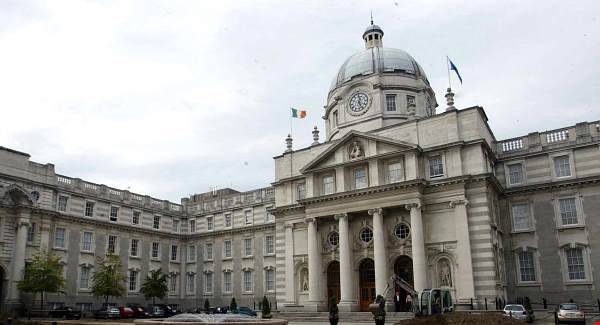The recent Higher Education Authority (HEA) Bill 2022 debate raises understandable concerns among Irish students over the government’s perceived indifference regarding student interests. The questions raised during the debate considered the government’s expanded powers in the newly proposed bill to control educational institutes’ management, policies, and funding.
However, before many of these questions could be answered, the debate was cut short, only leaving time to discuss a fraction of the proposed changes while the rest were abandoned without being addressed at all. The rushing of this bill through the Seanad has been highly controversial and widely opposed by student representatives for more reasons than the bill itself.
It is clear that not only is this bill not being held as a priority topic for debate, but that well-constructed student opinions are not a primary concern either. The bill’s legislative significance cannot be stressed enough, proposing substantial changes to the way universities and technological institutes in Ireland receive funding. For example, if a university allocates its funding in a way that doesn’t align with the new guidelines of the bill, they risk remedial measures, such as being withheld from future funding or even expected to repay the money it received back to the HEA.
Even though 326 amendments to the bill were proposed during the debate, only six were even discussed, clearly indicating that this bill deserves sufficient time to be debated as thoroughly as is needed.
Chapter 2 details these conditions of funding, which include educational institutions providing financial and other information to the Chief Executive Officer, operating according to standards of good governance, and to construct a funding framework. Other queries concerned the official government definition of a student union and the proposed reduction of student representatives on university boards. Even though 326 amendments to the bill were proposed during the debate, only six were even discussed, clearly indicating that this bill deserves sufficient time to be debated as thoroughly as is needed. It is disappointing to see such disregard for transparent discussion by those in power and their outright dismissal of students’ concerns, even though they would be most affected by the proposed changes.
The debate over this bill highlights a wider issue that has been prominent for some time, namely the government’s perceived apathy towards student issues. More worryingly, the government’s representatives did not even demonstrate a superficial show of care and consideration regarding the points raised. We must ask how secure our democracy is when it comes to governmental control over academia, a significant concern for student voices since we already have to worry about not being taken seriously when it comes to formulating education policy.
Not only did the fast-tracking of this bill demonstrate the government’s contempt for students’ opinions, but also a complete disrespect towards those who proposed each of the bill’s amendments as well as all of the student representatives in attendance. Even though this bill has dominated recent public discourse over Irish education policies, its discussion has been pushed, pressured, hurried along, and stripped of the importance and concern it was owed from the work of the students and their representatives to get their proposed amendments heard. Unfortunately, this ordeal appears to reflect a wider government indifference to student interests.
Amidst broader outcry over the debate being guillotined, student representatives published an open letter on behalf of the Trinity College Dublin Students’ Union (TCDSU), the Graduate Students’ Union (GSU), Students4Change (S4C), National College of Art and Design Students’ Union (NCADSU) and National University of Ireland Galway Students’ Union (NUIGSU), expressing their frustration at the debate’s conduct and undue abbreviation given the HEA Bill’s potential administrative impact. In response, government officials have now pushed back the bill until autumn and will not be going through before then, though it is concerning that such outcry had to happen at all to achieve this concession. As students, we must not let this slide; if it is this difficult for our concerns to be taken seriously in the first place, how can we expect them to be resolved at all?
When making decisions that affect our education, the government listening to student interests should be a given and free transparent discussion should be a priority. However, as the HEA Bill debate has demonstrated, students and their representatives must first fight for their opinions to be respected to begin with before any conceivable change can take place.






